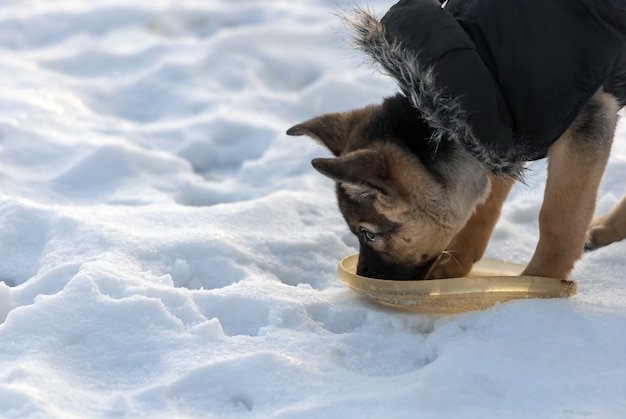Recognizing Digestive Issues in Cats and Dogs: When to Seek Help

Recognizing Digestive Issues in Cats and Dogs: When to Seek Help
When your pet is suddenly vomiting, refusing food, or experiencing diarrhea, it can be distressing and confusing to know what to do next. Digestive issues in pets are common, but they can range from mild and temporary to signals of a more serious underlying condition. At Harmony Road Veterinary Clinic, conveniently located at 309 W. Harmony Road, Fort Collins, CO 80526, our compassionate team of veterinarians is dedicated to helping you recognize the signs of digestive trouble in your dog or cat and guiding you on the next steps for their care.
This blog will walk you through the most common digestive problems in cats and dogs, key symptoms to watch for, the possible causes behind these issues, and when it is time to schedule an appointment for pet diagnostics in Fort Collins. You'll also find tips for managing mild symptoms at home and learn how our veterinary team supports pet owners throughout Fort Collins and surrounding communities with comprehensive care, including in-house diagnostic services. If you are searching for a "vet near me" who can help with your pet's digestive concerns, Harmony Road Veterinary Clinic is here to provide gentle, thorough care from the first exam to ongoing management. For a deeper look at how we evaluate and address health concerns, explore our pet diagnostic laboratory services near you.
Understanding the Signs: Is Your Pet Experiencing Digestive Issues?
Digestive issues in pets often show up suddenly, and many pet owners notice something is wrong because their dog or cat is acting differently. Recognizing the early warning signs can make a big difference in how quickly your pet recovers and whether more advanced treatment is needed.
Common Symptoms of Digestive Distress
Some of the most frequently reported concerns include dog vomiting, diarrhea, loss of appetite, or sudden changes in bathroom habits. You might notice your cat hiding more than usual, or your dog refusing treats and looking uncomfortable. Additional signs that may indicate a digestive problem are bloating or a visibly distended abdomen, excessive drooling, straining to defecate, or passing gas more than normal. In some cases, pets may whine, pace, or seem restless because of abdominal discomfort.
Other less obvious symptoms include sudden weight loss over a short period, lethargy, or dehydration, which may show up as dry gums or sunken eyes. Paying attention to these subtle changes can help you identify digestive issues early, especially when combined with more overt symptoms like vomiting or diarrhea.
When Digestive Symptoms Become More Serious
While a single episode of vomiting or mild diarrhea can sometimes resolve on its own, ongoing or severe symptoms require prompt attention. If your pet is vomiting repeatedly over several hours, unable to keep water down, or you see blood in their stool or vomit, these are urgent signs. Lethargy that does not improve, a distended abdomen, or signs of pain when you touch their belly are also indicators that your pet needs to be seen by a veterinarian as soon as possible. For pet owners searching for "veterinary services near me" in the face of persistent digestive issues, seeking help quickly can make a crucial difference.
What Causes Digestive Issues in Cats and Dogs?
Digestive issues in pets can have a wide range of causes, from simple dietary indiscretions to more complex medical conditions. Understanding the underlying reason can help you and your veterinarian determine the best course of action for your dog or cat.
Dietary Upsets and Food Sensitivities
One of the most common causes of digestive problems, especially dog vomiting, is eating something unusual. Pets may get into the trash, chew on plants, or receive table scraps that do not agree with their system. Even a sudden switch in food brands or types can upset the sensitive balance in your pet’s gut, leading to symptoms like vomiting or diarrhea.
Food allergies and sensitivities are another frequent culprit, particularly in pets who experience recurrent digestive upset. Some cats and dogs cannot tolerate certain proteins, grains, or additives, and ongoing exposure can lead to chronic issues.
Infections and Parasites
Bacterial, viral, or parasitic infections are another leading cause of digestive distress, especially in younger pets or those with weakened immune systems. Intestinal parasites such as roundworms, hookworms, or giardia can cause chronic diarrhea, weight loss, or poor coat quality.
Chronic Conditions and Serious Illnesses
Some digestive issues are symptoms of underlying chronic diseases, including inflammatory bowel disease, pancreatitis, liver disease, or even certain types of cancer. Older pets are more prone to these conditions and may show ongoing symptoms rather than acute episodes.
It is important to remember that while mild digestive upsets are sometimes not a cause for alarm, repeated or severe symptoms can signal a more significant health issue requiring diagnostic testing. Our veterinarians in Fort Collins use in-house laboratory services to pinpoint the root cause of your pet’s symptoms, helping to guide the most effective treatment plan.
How Veterinary Professionals Diagnose and Treat Digestive Issues
When your pet is showing signs of digestive distress, a comprehensive evaluation is the first step. At Harmony Road Veterinary Clinic, we take a systematic approach to ensure your pet receives the most accurate diagnosis and effective care.
What to Expect During Your Visit
During your appointment, our veterinarians will start with a detailed history of your pet’s symptoms, diet, environment, and any recent changes in routine. A thorough physical examination will follow, checking for abdominal pain, dehydration, fever, or other abnormalities.
Depending on the severity and duration of symptoms, diagnostics may be recommended. These can include bloodwork, fecal testing for parasites, urinalysis, and sometimes imaging such as digital radiographs or ultrasound. For pets who are acutely ill or not responding to initial treatments, additional specialized tests may be needed. To learn more about our on-site capabilities, visit our pet diagnostic laboratory page.
Treatment Options Tailored to Your Pet
Treatment for digestive issues in pets is tailored to the underlying cause and the individual needs of your dog or cat. For mild cases caused by dietary indiscretion, supportive care like temporary fasting, gradual reintroduction of bland food, and hydration may be all that is needed. When infections or parasites are found, medications to target the specific organism are prescribed.
For chronic or more serious conditions such as pancreatitis or inflammatory bowel disease, a combination of dietary management, medications, and sometimes long-term monitoring is required. In rare cases, surgical intervention may be necessary, especially if there is a blockage or mass detected during diagnostics.
Throughout the process, our veterinary team in Fort Collins communicates closely with pet owners, explaining each step and ensuring you are comfortable with the treatment plan. We also offer follow-up care and guidance to monitor your pet’s progress at home.
Home Care and Prevention for Digestive Issues in Pets
While not all digestive problems can be prevented, there are practical steps you can take at home to reduce your pet’s risk and support recovery from minor upsets.
Managing Mild Digestive Symptoms at Home
If your pet experiences a single episode of vomiting or diarrhea but is otherwise alert and active, you can try withholding food for a short period (usually 12-24 hours for dogs, less for cats) and then slowly reintroducing a bland diet such as boiled chicken and rice. Always ensure that fresh water is available, and monitor for signs of dehydration or worsening symptoms.
Avoid giving over-the-counter medications or human remedies without direct veterinary guidance, as some substances can be toxic to pets. If your pet is very young, elderly, or has underlying health conditions, contact your veterinarian before attempting home care.
Preventive Steps for Long-Term Digestive Health
Prevention strategies include feeding a consistent, high-quality diet appropriate for your pet's age and breed, avoiding sudden changes in food, and keeping trash, table scraps, and potentially toxic plants out of reach. Routine pet examinations and wellness exams allow veterinarians to catch early signs of digestive disease and provide tailored advice on nutrition and parasite prevention.
Regular deworming and fecal testing are important, especially for pets who spend time outdoors or around other animals. At Harmony Road Veterinary Clinic, we help pet owners in Fort Collins and surrounding communities with preventive care programs designed to support lifelong digestive health.
When to Seek Veterinary Care for Digestive Issues
Knowing when to call your veterinarian can be the most important step in protecting your pet’s health. While mild symptoms may resolve with simple care, certain situations require immediate assessment by a veterinary professional.
Red Flags That Warrant a Veterinary Visit
It is time to schedule an appointment if your pet’s vomiting or diarrhea lasts more than 24 hours, if there is blood present, or if your pet is showing signs of pain, lethargy, or dehydration. Refusal to eat or drink for longer than a day, persistent vomiting, or a swollen, hard abdomen are also urgent concerns.
Puppies, kittens, senior pets, and those with chronic health conditions are at greater risk of complications from digestive issues and should be evaluated promptly even for mild symptoms. For pet owners searching for "pet diagnostics near me" or "veterinary diagnostics in Fort Collins," timely intervention can prevent more serious complications.
At Harmony Road Veterinary Clinic, we encourage pet owners to reach out with any concerns. Our team of veterinarians is equipped to handle urgent cases and can often offer same-day appointments for digestive issues in pets. If you are ever unsure, it is always safer to call and discuss your pet’s symptoms with our veterinary professionals.
Compassionate Support and Diagnostics for Fort Collins Pets
Digestive issues in pets can be worrying, but you do not have to navigate these challenges alone. Recognizing the signs early, understanding potential causes, and knowing when to seek help are all crucial steps in keeping your dog or cat healthy. At Harmony Road Veterinary Clinic, our compassionate team is committed to providing personalized care for every pet, from preventive guidance to advanced diagnostics.
If you are looking for a "vet near me" who offers pet diagnostics in Fort Collins, we invite you to schedule an appointment with our veterinary team. Our in-house pet diagnostic laboratory and comprehensive pet exams help ensure your pet gets the timely care they deserve. Do not wait if your pet is showing signs of digestive distress—contact Harmony Road Veterinary Clinic at (970) 631-8199 or visit us at 309 W. Harmony Road, Fort Collins, CO 80526 to schedule your visit. Your pet’s health and comfort are our top priorities, and we are here to support you every step of the way.
All medical content in this blog is intended for informational purposes only and should not be used as a substitute for professional veterinary diagnosis or treatment. Always consult your veterinarian for personalized guidance regarding your pet’s health.






















